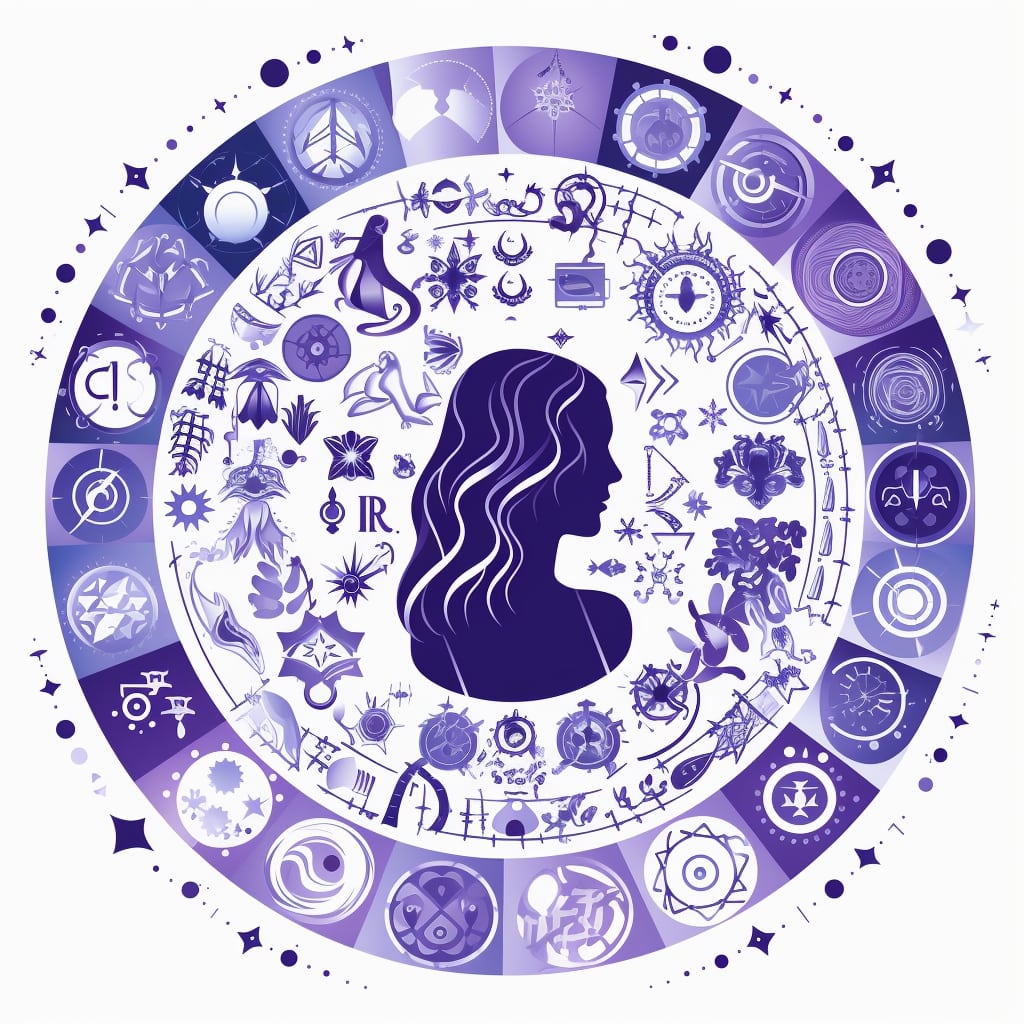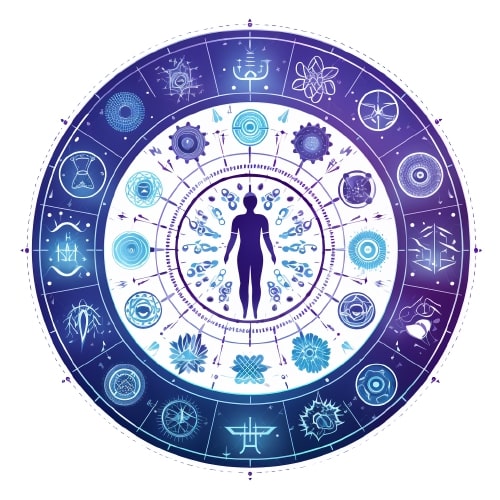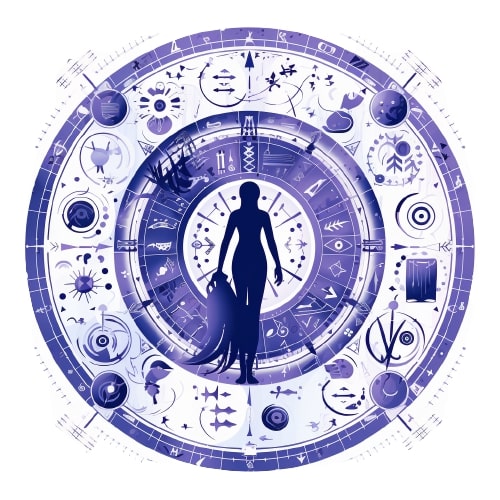
Cancer is a disease that affects not only the physical body but also the emotions and mental well-being of individuals. Emotional balance plays a crucial role in navigating the journey of cancer with strength and resilience. In this article, we will explore the connection between Cancer Health and emotional equilibrium and provide practical strategies for cultivating emotional balance during the cancer journey.
Key Takeaways
- Cancer can have a profound impact on emotional well-being.
- The mind-body connection plays a powerful role in cancer health.
- Building a strong support network is crucial for emotional resilience during cancer treatment.
- Maintaining a healthy lifestyle can promote overall well-being during cancer treatment.
- Cultivating emotional resilience and acceptance can lead to personal growth and improved well-being.
Understanding Cancer and its Impact on Health
When it comes to cancer, the impact on health can be significant. Cancer is a disease that occurs when abnormal cells divide and grow uncontrollably, often forming a mass or tumor. There are many different types of cancer, and each can affect the body in a unique way.
Depending on the type and stage of cancer, the impact on health can range from mild to severe. In some cases, cancer may not cause any symptoms or may be detected early through screening tests. In other cases, cancer may cause significant discomfort, pain, or disability, and may even be life-threatening.
Some of the most common impacts of cancer on health include:
| Impact on Health | Description |
|---|---|
| Physical Symptoms | Cancer can cause a variety of physical symptoms, such as pain, fatigue, weight loss, and changes in bowel or bladder function. These symptoms can impact daily activities and quality of life. |
| Emotional and Mental Health | A cancer diagnosis can be emotionally and mentally challenging. Many people experience anxiety, depression, fear, and other negative emotions. Coping with the emotional impact of cancer is an important part of overall health and well-being. |
| Social Life | Cancer can also impact social relationships and daily activities. Treatment schedules and side effects may make it difficult to maintain normal routines or participate in social events. |
It’s important for individuals with cancer to work closely with their healthcare team to understand the specific impacts on their health and to develop a comprehensive treatment plan that addresses both the physical and emotional aspects of the disease.
Understanding Cancer and its Impact on Health
When it comes to cancer, the impact on health can be significant. Cancer is a disease that occurs when abnormal cells divide and grow uncontrollably, often forming a mass or tumor. There are many different types of cancer, and each can affect the body in a unique way.
Depending on the type and stage of cancer, the impact on health can range from mild to severe. In some cases, cancer may not cause any symptoms or may be detected early through screening tests. In other cases, cancer may cause significant discomfort, pain, or disability, and may even be life-threatening.
Some of the most common impacts of cancer on health include:
- Physical Symptoms: Cancer can cause a variety of physical symptoms, such as pain, fatigue, weight loss, and changes in bowel or bladder function. These symptoms can impact daily activities and quality of life.
- Emotional and Mental Health: A cancer diagnosis can be emotionally and mentally challenging. Many people experience anxiety, depression, fear, and other negative emotions. Coping with the emotional impact of cancer is an important part of overall health and well-being.
- Social Life: Cancer can also impact social relationships and daily activities. Treatment schedules and side effects may make it difficult to maintain normal routines or participate in social events.
It’s important for individuals with cancer to work closely with their healthcare team to understand the specific impacts on their health and to develop a comprehensive treatment plan that addresses both the physical and emotional aspects of the disease.
The Emotional Toll of Cancer
A cancer diagnosis can take an immense emotional toll on individuals and their loved ones. The emotional impact of cancer is complex and can vary greatly depending on factors such as the stage of cancer, treatment options, and personal circumstances.
Individuals may experience a range of emotions including fear, anxiety, anger, sadness, and uncertainty. It’s important to acknowledge and express these emotions in a healthy way, as bottling up emotions can lead to further distress.
The emotional toll of cancer can also affect relationships with loved ones. Communication may become strained or difficult, and misunderstandings can occur. It’s important to make an effort to communicate clearly and honestly, and to seek support from family, friends, or a healthcare professional if needed.
It’s important to remember that experiencing a range of emotions is normal and okay. It’s also important to prioritize self-care during this time and to seek out resources and support to help cope with the emotional impact of cancer.
The Mind-Body Connection
Cancer not only affects the body but also the mind. The mind-body connection is a powerful force that can impact an individual’s physical health. Studies have shown that emotional wellbeing can improve recovery rates and the overall quality of life of those affected by cancer.
The mind and body are closely connected, and it is important to recognize the effect emotions can have on physical health. Negative emotions such as stress, anxiety, and depression can weaken the immune system and make it harder for the body to fight cancer. On the other hand, positive emotions such as hope, optimism, and resilience can boost the immune system and promote healing.
The Benefits of Emotional Well-Being
Emotional well-being has been linked to better treatment outcomes and improved quality of life for cancer patients. Individuals with a positive outlook and good emotional health have been shown to experience less pain, fatigue, and other symptoms associated with cancer treatments. Moreover, these individuals are able to handle treatments and side effects better, leading to a faster recovery.
Additionally, emotional well-being can help individuals cope with the stress of a cancer diagnosis and navigate the journey with greater ease. By cultivating positive emotions and focusing on mental health, individuals can build resilience and find a sense of calm amidst the chaos of cancer treatment.
The Mind-Body Connection and Complementary Therapies
Alternative or complementary therapies can be helpful in promoting emotional balance and enhancing the mind-body connection. Practices such as meditation, yoga, and acupuncture have been shown to reduce stress, improve mood, and promote relaxation. These complementary therapies can work alongside traditional treatments to support the healing process and improve the overall experience of the cancer journey.
It is important to consult with a healthcare professional before starting any complementary therapy. They can provide guidance on which therapies are safe and effective and ensure they do not interfere with cancer treatment or medications.
Strategies for Cultivating Emotional Balance
While a cancer diagnosis can bring a range of difficult emotions, there are strategies you can use to cultivate emotional balance and maintain resilience throughout your journey. These may include:
- Mindfulness: Practicing mindfulness, such as meditation or breathing exercises, can help you stay present and calm in the midst of uncertainty and anxiety.
- Therapy: Speaking with a therapist can provide a safe space to process difficult emotions and gain new insights into coping mechanisms.
- Support groups: Joining a support group can connect you with others who are going through similar experiences, providing a sense of community and validation.
Remember to be patient with yourself and allow yourself time to process the emotions that may arise during your cancer journey. Everyone’s experience is unique, and it may take time to find the strategies that work best for you.
Building Support Networks
Receiving a cancer diagnosis can be overwhelming and emotional. It is important to create a support network to help you navigate the journey ahead.
Your support network can include loved ones, healthcare professionals, and support groups. Building these relationships can provide a sense of comfort and security during a difficult time.
When building your support network, be open and honest with those around you. Express your feelings and needs, and allow others to support you in the ways that they can.
Joining a support group can also be helpful in connecting with individuals who are going through a similar experience. These groups can provide a space for sharing experiences, emotions, and advice.
It is important to remember that your support network can evolve over time and that it is okay to adjust your needs and expectations throughout your journey.
Navigating Relationships and Communication
Receiving a cancer diagnosis can be overwhelming and emotional. It can impact not only the individual but also their loved ones. It is important to navigate relationships and communication during this time to ensure that everyone stays connected and supported.
Open Communication
Open communication is key when it comes to navigating relationships during cancer. It is important for individuals to express their feelings and concerns in a safe and non-judgmental space. Loved ones should also feel encouraged to share their thoughts and feelings. Regular check-ins and open dialogue can help ensure that everyone stays on the same page and that any issues or concerns are addressed promptly.
Understanding and Empathy
It is essential to approach conversations with understanding and empathy. Cancer affects everyone differently, and it can be easy to become frustrated or upset with those who do not seem to understand. However, remembering that everyone is processing the news in their own way can help create a more supportive and compassionate environment. Empathy and understanding can go a long way in strengthening relationships and improving communication.
Support Groups
Support groups can be an excellent resource for anyone navigating a cancer diagnosis. They provide a safe space for individuals to connect with others who are going through a similar experience. Support groups can also be a great way to learn new communication strategies and coping mechanisms. Whether attending in-person or virtual meetings, support groups can provide a sense of community and understanding that can be valuable for relationships.
Professional Help
It is not always easy to navigate relationships and communication during a cancer journey, and it is okay to seek professional help. Therapy can be a useful tool for both the individual and their loved ones. It provides a space to work through issues and improve communication skills. A therapist can also provide coping strategies for dealing with the stress and emotional toll of cancer.
Navigating relationships and communication during a cancer diagnosis can be challenging, but it is essential for maintaining a strong support system. Open communication, understanding and empathy, support groups, and professional help can all be valuable tools in strengthening relationships and improving communication with loved ones.
Coping with Treatment Side Effects
Cancer treatment can cause a range of side effects that can be physically and emotionally challenging. However, with the right coping strategies, it is possible to manage these side effects and maintain a good quality of life. Here are some tips for coping with treatment side effects:
- Educate yourself: Learn as much as you can about the treatment you are receiving and the potential side effects so that you can be prepared and know what to expect. Your healthcare team can provide you with information and resources.
- Communicate with your healthcare team: Keep your healthcare team informed about any side effects you are experiencing. They can offer advice and support to help you manage them.
- Practice self-care: Take care of yourself by getting plenty of rest, eating a healthy diet, and engaging in activities that you enjoy. This can help reduce stress and improve overall well-being.
- Consider complementary therapies: Alternative therapies, such as acupuncture or massage, may help alleviate some side effects and provide additional support.
- Join a support group: Connecting with others who are going through similar experiences can provide invaluable emotional support and help you feel less alone.
Remember that coping with treatment side effects is a process, and what works for one person may not work for another. Be patient and persistent in finding strategies that work for you, and don’t hesitate to reach out for help when you need it.
Maintaining a Healthy Lifestyle
Keeping up a healthy lifestyle is crucial during cancer treatment. Eating a balanced diet, getting regular exercise, and managing stress can improve overall well-being and help manage side effects from treatment.
Good nutrition is essential for maintaining strength and keeping the body healthy. Eating a varied diet that includes plenty of fruits, vegetables, whole grains, and lean protein can provide the necessary nutrients to support the body during cancer treatment. Some people may find it helpful to consult with a registered dietitian to develop a personalized nutrition plan.
Staying active can also help manage treatment side effects and boost mood. Physical activity can include anything from taking a walk to practicing yoga or swimming. It’s important to talk to your healthcare team before starting any new exercise program to ensure it’s safe and appropriate for your situation.
Stress management techniques, such as deep breathing, meditation, or acupuncture, can help reduce anxiety and improve mental health. Support groups or counseling can provide additional guidance and assistance with managing stress and anxiety during treatment.
Taking care of mental and physical health during cancer treatment can be challenging, but by implementing simple lifestyle changes, it is possible to improve overall well-being.
Emotional Resilience and Acceptance
Living with cancer can be a challenging experience that requires a great deal of emotional strength and resilience. Accepting and adapting to the changes that come with a cancer diagnosis can be difficult, but it is an important aspect of emotional well-being. Emotional resilience and acceptance can help individuals maintain a positive outlook, cope with stress, and find meaning in their journey.
Emotional resilience is the ability to adapt to stressful situations and bounce back from adversity. Accepting the challenges of cancer and staying positive can be an important part of cultivating emotional resilience. It involves acknowledging difficult emotions such as fear and sadness, but also finding ways to stay optimistic and hopeful.
Acceptance is also key to emotional balance. It involves coming to terms with the reality of the situation and finding ways to move forward in a positive way. Accepting that cancer is a part of one’s life can be difficult, but it can also open up opportunities for personal growth and creating new perspectives on life.
There are several strategies that can help individuals cultivate emotional resilience and acceptance. These include seeking support from loved ones and healthcare professionals, practicing mindfulness and relaxation techniques, setting realistic goals, and engaging in activities that bring joy and meaning to life.
It is important to remember that emotional resilience and acceptance are not about suppressing difficult emotions or denying the challenges of cancer. Rather, these qualities involve acknowledging and processing emotions in a healthy way, while focusing on the positive aspects of life and finding ways to move forward with strength and resilience.
Finding Meaning and Purpose
Living with cancer often prompts an existential search for meaning and purpose. This journey towards self-discovery can be a source of inspiration and hope during challenging times.
One way to find meaning is to identify and pursue activities that align with personal values and beliefs. Engaging in creative pursuits, volunteering, or spending time in nature can provide a sense of fulfillment and purpose. Additionally, setting achievable goals, whether big or small, can create a sense of accomplishment and direction.
It’s important to acknowledge that finding meaning and purpose can be an ongoing process, and it’s okay to experience setbacks or changes in perspective. Allowing oneself the space and time to reflect, reassess, and adapt can promote growth and resilience.
Finding meaning and purpose can also involve cultivating a sense of gratitude and focusing on positive aspects of life. Practicing daily gratitude exercises or keeping a gratitude journal can shift attention towards the good and provide a sense of perspective.
In some cases, seeking the guidance of a spiritual or religious leader, or joining a support group can provide additional avenues for exploring and cultivating meaning and purpose.
Conclusion
In conclusion, cancer health and emotional balance are intricately linked. It is essential to maintain emotional equilibrium while navigating the challenges of the cancer journey. Building a strong support network, communicating effectively with loved ones, and cultivating emotional resilience and acceptance are some ways to achieve this.
It is important to understand that cancer can have a profound impact on overall health and well-being. However, by maintaining a healthy lifestyle, coping with treatment side effects, and finding meaning and purpose in life, individuals can improve their quality of life.
Through the mind-body connection, emotional well-being can impact physical health, and vice versa. Hence, strategies for cultivating emotional balance such as mindfulness, therapy, and support groups should be integrated into cancer care.
It is our hope that this article has shed light on the importance of emotional balance in cancer health. We encourage readers to maintain resilience and seek support during their cancer journey.
Remember:
- Building a strong support network is essential during the cancer journey.
- The mind and body are connected, and emotional well-being can impact physical health.
- Cultivating emotional resilience and acceptance can lead to personal growth and improved well-being.
- Find meaning and purpose in life, pursue passions, and set goals to maintain emotional balance.
Thank you for taking the time to read this article. We hope it has been helpful and informative.
FAQ
Q: How does emotional balance impact cancer health?
A: Emotional balance plays a crucial role in navigating the journey of cancer with strength and resilience. It can help reduce stress, enhance overall well-being, and improve treatment outcomes.
Q: What is the impact of cancer on overall health?
A: Cancer can have profound effects on overall health. It can weaken the immune system, cause fatigue, lead to weight loss or gain, and impact mental and emotional well-being.
Q: What emotions are commonly experienced during the cancer journey?
A: The range of emotions experienced during the cancer journey can vary widely. It can include fear, anxiety, sadness, anger, hopelessness, as well as moments of resilience, hope, and gratitude.
Q: How does emotional well-being affect physical health?
A: The mind-body connection is powerful, and emotional well-being can have a significant impact on physical health. Positive emotions can enhance the immune system and overall resilience, while negative emotions can weaken it.
Q: What are some strategies for cultivating emotional balance?
A: There are various strategies for cultivating emotional balance during the cancer journey. These include mindfulness practices, therapy or counseling, engaging in support groups, and incorporating self-care activities into daily life.
Q: Why is building a support network important for cancer patients?
A: Building a strong support network is important for cancer patients because it provides emotional support, practical assistance, and a sense of belonging. It can help alleviate feelings of isolation and provide a reliable source of empathy and encouragement.
Q: How can I improve communication with my loved ones during a cancer diagnosis?
A: Improving communication with loved ones during a cancer diagnosis involves active listening, expressing emotions openly and honestly, setting boundaries, and seeking professional support if needed. It is essential to foster understanding and empathy while allowing for open dialogue.
Q: How can I cope with treatment side effects?
A: Coping with treatment side effects involves a multi-faceted approach. It can include working closely with healthcare professionals, following recommended interventions, practicing self-care techniques such as relaxation exercises, and exploring alternative therapies if appropriate.
Q: What role does a healthy lifestyle play in cancer treatment?
A: Maintaining a healthy lifestyle during cancer treatment is crucial. It supports overall well-being, boosts energy levels, promotes healing, and can help manage treatment side effects. Emphasizing nutrition, exercise, and stress management can contribute to a better quality of life.
Q: How does emotional resilience and acceptance help in dealing with cancer?
A: Emotional resilience and acceptance are powerful qualities that can aid in dealing with cancer. They allow individuals to adapt to the challenges, find strength in adversity, and experience personal growth. Cultivating these qualities can improve overall well-being and enhance coping abilities.
Q: How can I find meaning and purpose while living with cancer?
A: Finding meaning and purpose while living with cancer involves exploring personal values, setting meaningful goals, engaging in activities that bring joy, and seeking support from loved ones and professional resources. It can help individuals stay motivated, maintain a positive outlook, and find fulfillment in life.
Q: What are the key takeaways about cancer health and emotional balance?
A: The key takeaways are the importance of emotional balance in the cancer journey, the impact of emotional well-being on overall health, the strategies for cultivating emotional balance, the significance of support networks, and the role of resilience, acceptance, and finding meaning in living with cancer.

































































